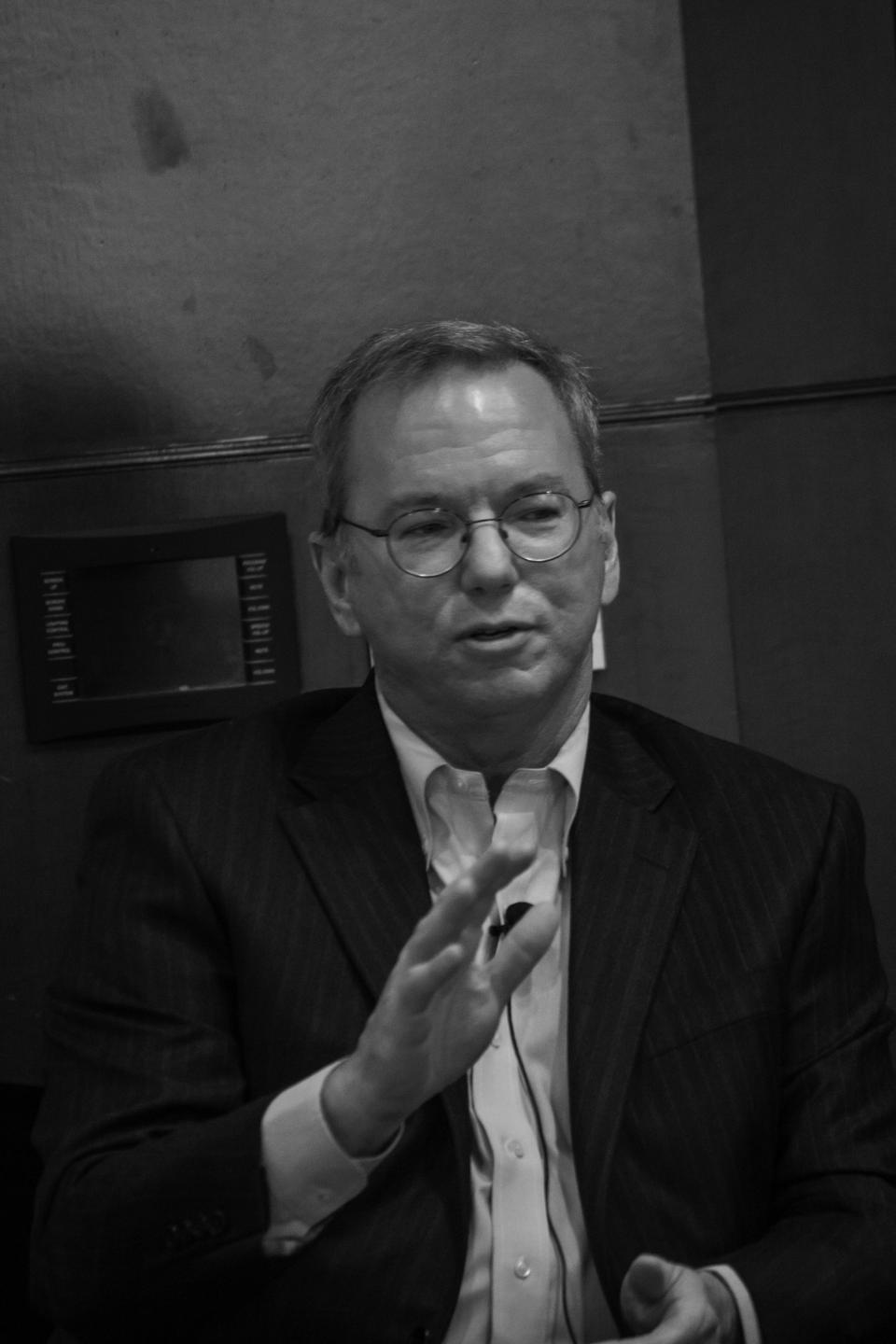
News
Cambridge Residents Slam Council Proposal to Delay Bike Lane Construction

News
‘Gender-Affirming Slay Fest’: Harvard College QSA Hosts Annual Queer Prom

News
‘Not Being Nerds’: Harvard Students Dance to Tinashe at Yardfest

News
Wrongful Death Trial Against CAMHS Employee Over 2015 Student Suicide To Begin Tuesday

News
Cornel West, Harvard Affiliates Call for University to Divest from ‘Israeli Apartheid’ at Rally
Google's Executive Chairman Eric Schmidt Addresses Global Web Politics

When asked by an audience member during a talk Thursday at the John F. Kennedy School of Government which country in the world has “the best internet,” Google’s Executive Chairman Eric Schmidt gave a facetious answer: Iran.
Schmidt voiced concern about the Iranian government’s announcement this month that it plans to create a rival version of his company’s Google Earth tool, alluding to speculation that the forthcoming map, which the government of Iran calls the “Islamic Google Earth,” may not list Israel as a country.
Islamic Google Earth, he said, could ultimately become an example of what he termed a grave threat facing the digital sphere—the intervention of governments online.
“We’re in great danger of governments deciding to filter, delete, or otherwise alter the shared resources of the internet,” Schmidt said.
At several points during the talk, which was held to promote his book “The New Digital Age,” Schmidt spoke to the way Google has navigated the changing relationship between technology and government.
When asked by an attendee why Google decided to leave China, Schmidt said that the decision was due to oppressive censorship by the Chinese government.
“Engagement is better than estrangement,” Schmidt said. But, he continued, “there’s a point in which engagement violates too many of your own principles.”
Schmidt also called on governments to put more information online to keep their citizens informed. Schmidt, who sits on the President’s Council of Advisors on Science and Technology, recalled an instance in which the Council was delivered a report that was never put on the internet.
“If that’s what government is about, then no one’s going to get anything done,” he said.
With much official data offline, he said, citizens must turn to another source in search of information. Schmidt said that in this environment, Google functions as a tool to help people sift through facts of varying reliability.
“We see ourselves as ranking facts,” Schmidt said.
By way of a solution, Schmidt emphasized the importance of openness between the government and its citizens.
“Transparency is usually the right answer,” he said. “People have to know what’s really going on.”
Attendees at the talk said that they were impressed and suprised by Schmidt’s message.
“I didn’t expect [the talk] to have so much insight into foreign policy as it relates to Google,” said Erin L. Patten, a student enrolled at the Kennedy School and the Business School.
—Staff writer Laya Anasu can be reached at layaanasu@college.harvard.edu. Follow her on Twitter @layaanasu.
Want to keep up with breaking news? Subscribe to our email newsletter.
